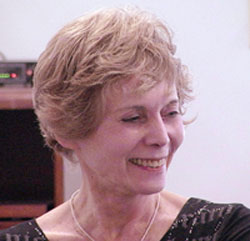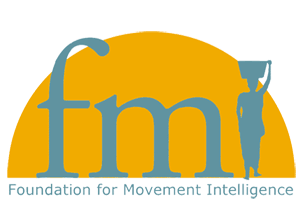Our Mission
The mission of FMI is to address widespread concern regarding loss of mobility, balance, coordination and bone strength by providing practical self-care strategies for optimal movement as embodied in Ruthy Alon’s Movement Intelligence™ programs.
Our Vision
We envision a world where, through self-reliantly mastered posture and movement, people from all walks of life enjoy streamlined balance and harmoniously integrated coordination, and autonomously foster resilient, reliable bones throughout their lives.
Aims, Goals, and Objectives
FMI seeks to spread the word about Movement Intelligence™ principles, programs, and practices by promoting their teaching, and encouraging their recognition, investigation, and acceptance among academic, scientific, research, and medical centers and communities throughout North America.
The aims, goals, and objectives of the Foundation for Movement Intelligence are:
- To popularize Bones for Life® and its related programs — Walk for Life, Mindful Eating, Chairs and Solutions — disseminating their principles and engaging the interest of the public and the media through classes, trainings, conferences, advertising, signature events, and other promotional activities, as well as outreach to established organizations that may embrace and incorporate these programs in whole or in part
- To increase recognition of instructors of Bones for Life® and Ruthy Alon’s other Movement Intelligence [MI] programs by promoting their teaching as a visible and viable profession
- To oversee the preparation and certification of successive generations of MI Teachers and Trainers, and ensure continued communication and support
- To provide and promote vehicles for internal communication and discussion among the community of Movement Intelligence professionals
- To form affiliations and alliances with academic and other educational institutions
- To develop opportunities that underscore the efficacy of these programs through objective scientific research
- To sponsor and underwrite educational outreach to underserved populations
- To grow and channel our base of volunteer, donor, grantee, contributor and collaborator efforts
Founder’s Statement
 “What excites me about Bones for Life® is the alchemy of people transforming their compromises into hope, and trusting themselves to restore their own well-being.
“What excites me about Bones for Life® is the alchemy of people transforming their compromises into hope, and trusting themselves to restore their own well-being.
“I am especially moved by everyday people, not just those who are at the height of success and winning life’s race, but those with hardships who have forgotten their right to feel good about themselves.
“I would like to see the Bones for Life® program growing popular, offering an intelligent culture of movement and perception that takes life beyond the blindness which deals with fear and limitation through aggression, rather than by learning how to gain strength and dignity through a new, well-organized, and naturally meant way of moving.
“I think the emphasis to attract interest in our programs should be on the solutions that we provide to the majority of the public — where people are losing ease and grace in their movement, becoming weak, and giving up. We have a message to offer every person, not just athletes and gymnasts.
“Most people in civilized life need to revive their movement coordination, and they don’t find answers in other available methods — which are often too hard on their bodies. We get our amazing results because we use natural principles for self-improvement, like the baby who acquires its functioning through trial and error, exploring endless variations.
“This represents a new approach to learning, which does not come from imitating any authoritarian, supposedly ‘ideal’ model, but by enabling a process of exploration, judged by one’s personal sensation, where the criterion is comfort; this awakens our innate movement intelligence, and leads us to discover solutions from within.
“In addition to modeling the baby’s method of movement acquisition, we also use configurations derived from the animal world, where proven, efficient movement has served survival needs for centuries.
“The end result is that people rid themselves of their limitations, move more gracefully, and — most excitingly — they once again love to move. We call this restoration Biological Optimism.”
— Ruthy Alon, Ph.D.
Background
The Foundation for Movement Intelligence was formed in February 2007 as a Maine nonprofit organization. Our original focus was on fostering public awareness of alternative approaches to osteoporosis prevention and reversal, specifically as presented in a health program created by Ruthy Alon, Ph.D., called Bones for Life.
It is well established that weight-bearing and impact exercises are conducive to strengthening bone tissue, but, due to the sedentary nature of modern society, not much is widely known about proper body mechanics for withstanding increased forces. If not carried out safely and intelligently, activity to increase bone strength, rather than helping osteoporotic conditions, can actually lead to further skeletal damage and deterioration.
To answer this state of affairs, the 90 processes in the Bones for Life program effectively comprise a training in optimal human biomechanics, teaching, as a precondition to adding weight, natural and anatomically precise ways of sitting, standing, walking, falling, reaching, etc., i.e., the ergonomic “best practices” of human posture and locomotion. Challenging bone-building activity is not engaged in until the skeletal frame is first securely organized into a reliable and resilient weight-bearing structure.
In the mid-1990s Ms. Alon began developing the Bones for Life program, for which she carefully deconstructed the movement patterns used by indigenous cultures throughout the world [including squatting, climbing, running, jumping, and carrying loads on their heads]. She then synthesized these patterns into a sophisticated — yet readily assimilated — experiential program in the basic activities of daily living, whose earliest workshops debuted in 1999 [Santa Monica, California]. In the Bones for Life program, though weight is added only after one’s body is properly aligned, and then only in relatively small increments, pilot studies conducted several years ago showed a significant increase in BMD (bone mineral density) among trainees who attended only four months of Bones for Life classes. We would not be surprised to learn that less easily detected [trabecular] changes in the geometry and consistency of bone tissue occurred as well, as a result of this program’s functionally restorative processes.
Recent years have seen the development of further Movement Intelligence™ programs, each with a different focus, but all based on the same principles as Bones for Life, and using the same progressive, self-reliant, self-help strategies for somatic learning. These expanded offerings include Chairs, Solutions for Optimal Mobility, Walk for Life and Mindful Eating.
In sum, Ms. Alon’s approach is gradual, safe, and gentle — and hence applicable to a broad range of individuals concerned with avoiding injury while improving the quality of their lives. We thus feel that this work deserves greater attention, and it is our mission to make the principles and practices of Ms. Alon’s pioneering Movement Intelligence programs more recognized by, and more widely available to, the public.
